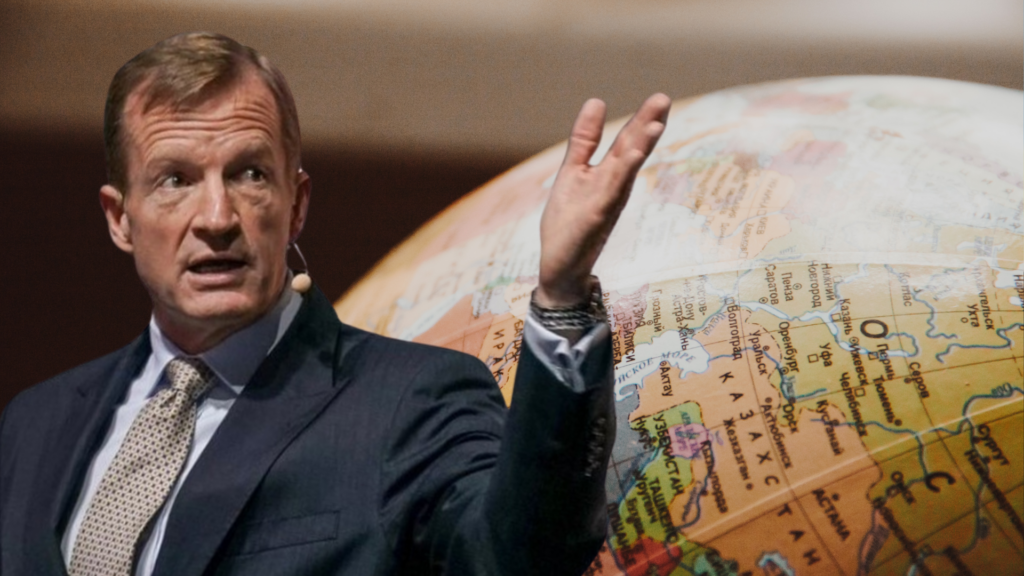Meet Andrew MacLeod: The Global Leader Helping Businesses Navigate Crisis, Change and Complexity

Professor. Diplomat. CEO. Crisis responder. Andrew MacLeod’s career defies categorisation. That’s exactly why so many businesses turn to him when the world shifts. As a former UN official and humanitarian leader, Andrew has managed operations across war zones and disaster zones, led global companies across four continents and advised governments on everything from security to social cohesion.
Through it all, one thing has remained constant – his belief that the lessons learned in conflict, catastrophe and complex diplomacy are not just for boardrooms. There are lessons there for every workplace, every team, every leader.
So what can organisations learn from someone who’s worked at the sharp end of global change?
1. Create a Culture Where It’s Safe to Be Wrong
One of Andrew’s most enduring lessons from conflict zones is simple, but powerful: “Surround yourself with people who are prepared to tell you when you’re wrong.”
Whether responding to earthquakes in Pakistan or navigating post-conflict governance, he’s seen time and time again that sycophants don’t save lives (or businesses!) Instead, leaders should foster an environment where people feel safe to speak up, admit mistakes and change their minds.
In fact, Andrew begins every meeting with one pivotal question: “What happened overnight that should change the decisions we made yesterday?”
It’s the hardest thing to get people to do – admit they were wrong. But Andrew’s key insight is that to avoid mistakes, we have to create structures for people to change their mind and say when they’re wrong.
2. Forget CSR – Think Shared Value
Andrew isn’t interested in fluffy corporate social responsibility. He’s passionate about shared value – where communities and companies both thrive. Andrew points to BHP’s anti-malaria program in Mozambique as a perfect example.
Designed to benefit the local community, the program also slashed absenteeism from 22% to 2%, directly boosting profitability.
“Community engagement isn’t charity,” he says. “It’s asset protection. It’s risk mitigation. It’s a way to improve your bottom line.”
His message to executive teams? CSR shouldn’t sit with marketing, it should sit in the C-suite.
3. Understand the Real Geopolitical Shift: A Return to Asian Dominance
Too often, Andrew says, people view geopolitical disruption through the lens of news headlines – Trump, Ukraine, Gaza. But there’s a bigger story unfolding.
“What we’re experiencing isn’t just a political cycle,” he explains. “It’s an epochal shift, what we’re seeing – the return to Asian dominance.”
From trade and economics to military power and diplomacy, Andrew argues we’re already halfway through a 20 year transformation, one that businesses can’t afford to ignore.
“Australian organisations need to be ready,” he says. “That means understanding our demographics, our trade partners and our messaging. If our two largest migrant and trade groups are Chinese and Indian, what signal do we send when we tell their students and tourists not to come?”
His advice is clear: Adapt fast or get left behind.
4. Solving Big Problems Starts With One Question
From leading responses to deadly natural disasters to running billion-dollar businesses, Andrew knows what it takes to face the impossible. His advice for tackling big challenges in business or in life is surprisingly practical.
“First, ask: is this a logic vs emotion argument?” he says. “Because if you’ve got two people speaking different languages – one logical, one emotional – you’ll never get to a solution.”
His second go-to framework? Find the negotiating space. “If one person won’t go below $10 and the other won’t go above $9, there’s no deal to be made. The faster you realise that, the better.”
These negotiation principles, he says, apply just as much in the kitchen at home as they do in global diplomacy.
5. Sometimes the Best Ideas Come From the 21-Year-Old Volunteer
In every context, from Pakistan’s earthquake recovery to boardroom strategy, Andrew keeps returning to the same truth – no one has the monopoly on good ideas.
He recalls a moment during the 2005 Pakistan earthquake when a local university student offered an offhand idea: build one warm room out of rubble. That one idea scaled into 200,000 emergency shelters and saved countless lives.
“The idea that saved the day came from a 21-year-old volunteer,” he says. “Listen to everyone. No one is always wrong, and brilliance can come from the most unexpected place.”
Whether you’re navigating political uncertainty, shifting consumer expectations, or the pressure of daily decision-making, Andrew MacLeod offers a rare kind of clarity, rooted in real-world crises and grounded in transformative leadership.
His global insights, humour, and honesty make him an in-demand speaker for businesses and organisations who want more than just ideas, they want action.
To book Andrew MacLeod for your next event, get in touch with the ICMI team.